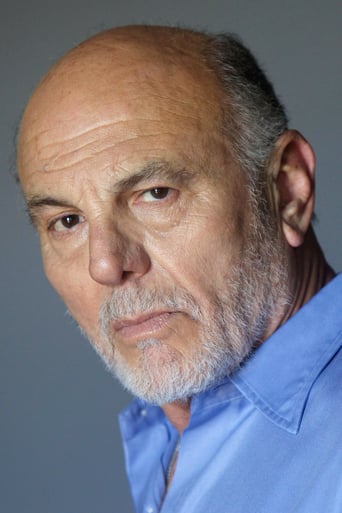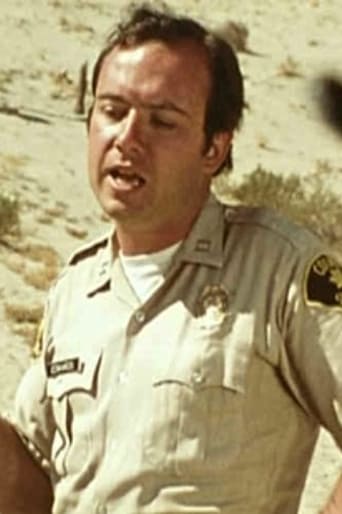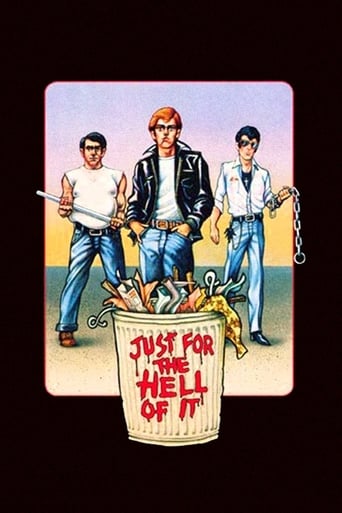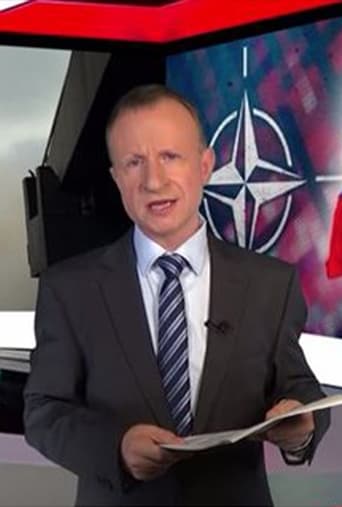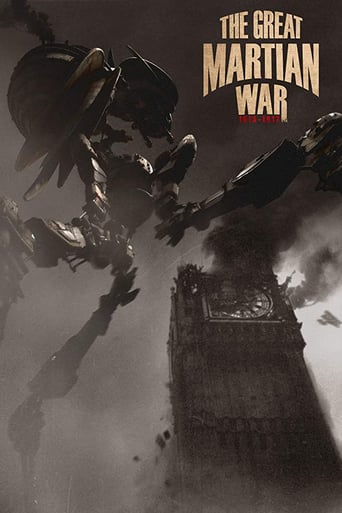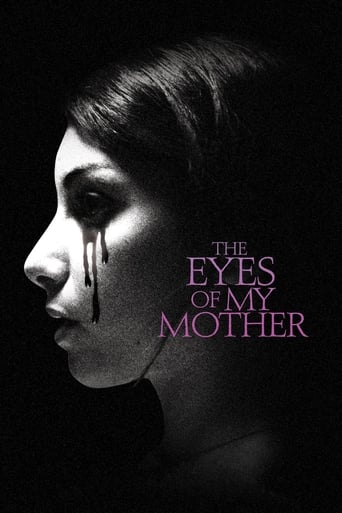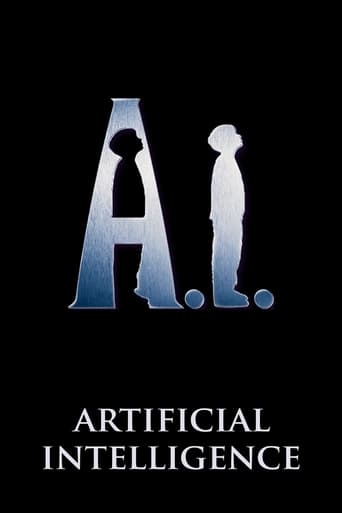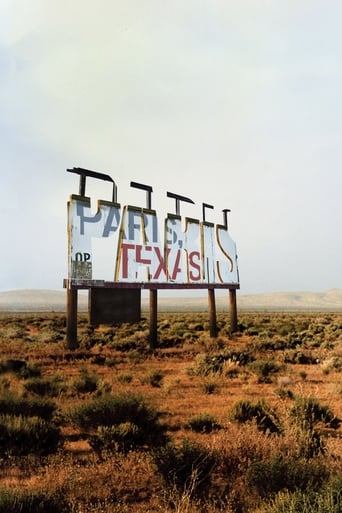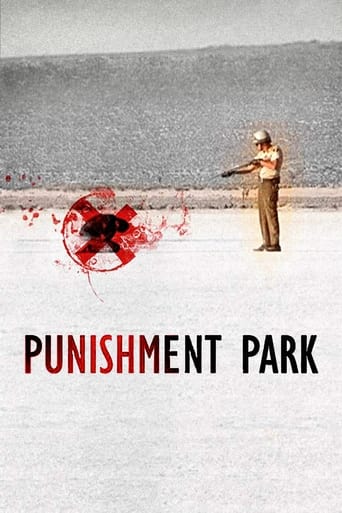
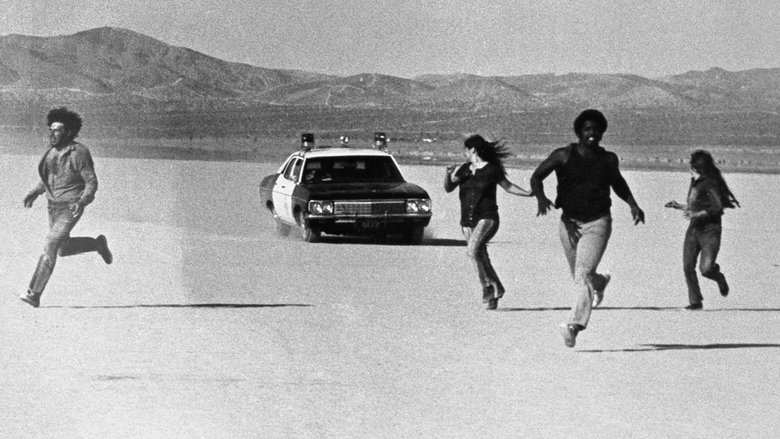
Punishment Park (1971)
In this fictional documentary, U.S. prisons are at capacity, and President Nixon declares a state of emergency. All new prisoners, most of whom are connected to the antiwar movement, are now given the choice of jail time or spending three days in Punishment Park, where they will be hunted for sport by federal authorities. The prisoners invariably choose the latter option, but learn that, between the desert heat and the brutal police officers, their chances of survival are slim.
Watch Trailer
Cast
Similar titles
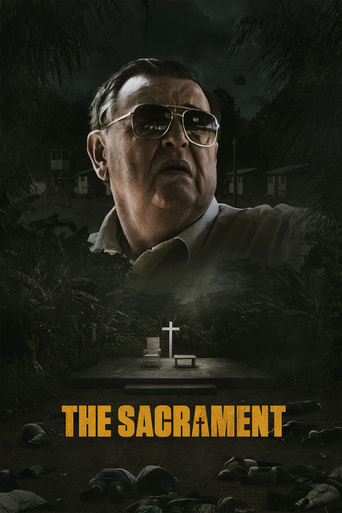
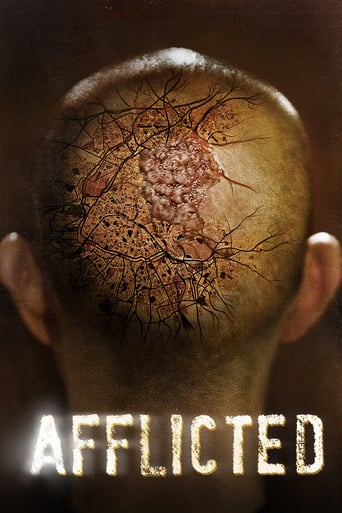
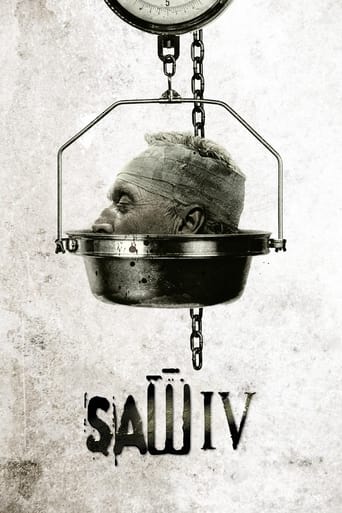
Reviews
Good movie but grossly overrated
The first must-see film of the year.
It really made me laugh, but for some moments I was tearing up because I could relate so much.
A terrific literary drama and character piece that shows how the process of creating art can be seen differently by those doing it and those looking at it from the outside.
Peter Watkins' film Punishment Park is nothing if not a sincere cry for justice. Of course the film is a metaphor, a provocation, a sort of alternate reality that could have been a science fiction fable if it wasn't so naturalistic as a "fake" documentary. And of course there weren't 'Punishment Parks' in America in 1970 when the film was made, where dissidents and rabble-rousers and draft dodgers were taken and given the chance to either participate in the 'game' or go to prison without a fair trial. And sure, at the time, the film got panned for being too blunt an instrument of provocation, of being so much about its subjects of the US versus THEM element that it was too much.But what can be said of the film today? At the time for those who didn't know it was a "fake" documentary, like in Finland, they panned the US government for allowing such a thing like this to happen! This is, perhaps, the best kind of compliment Peter Watkins could have received - certainly he fared better there than with the film critics who panned it and, ultimately, the film got four days of distribution by a no-nothing company before being pulled from NY city screens (it fared worse in being shown on TV or elsewhere, where for years it was just unavailable). Seeing it in 2010 is still a shocker some forty years later. Not because of what it says about its time and place, that's a given, about the rift between those in power and those not, but that it could still happen, in a slightly less extreme form, today (just look at the atrocity of justice with Guantanamo Bay for that).There's something about this film that gets under my skin. It got its way in within the first ten minutes, by sinking its teeth with its structure, of it being a British documentary on this 'Punishment Park' out in the California baron wasteland (it could be Death Valley, but whatever it is it's unbearable conditions), and how nothing is made to look fantastic. The nerve of the film is like that of Night of the Living Dead in its no-holds-barred hand-held approach to photography (only in this case the police seem to be the zombies, albeit with more of a brain which is perhaps much more frightening). Watkins cuts between this demonstration of what the 'Park' is - a three to four day excursion from one point to another where those who volunteer (and there are many, as the alternative is years in prison) who have to get to an American flag. Which is not easy when you have police just getting ready and more than willing to kick the crap out of those dissidents and, of course, shoot to kill.This is all meant as metaphor, and the most contemporary example I could think of as comparison would be District 9 (though that film didn't carry out its artistic premise anywhere near as thoroughly as this). But the metaphor is strong because of a) what was happening at the time, with Chicago and Kent State and the trial of the Chicago 7 (Bobby Seale's gagging during the trial is recreated here with one such African American on "trial"), and of the attitudes at the time. The what if shouldn't be diminished because of thinking practically about what would happen if this really did occur. What matters is making it seem real, carrying the documentary aesthetic and toying with it - Watkins goes from objective reporter to subjective "WTF"-ing at the police killing and maiming people from one scene to the next, which is chillingly effective - to make the experience last in the mind.Aside from it being a rigorous example of film-making, and a satire that is about as funny as a burning school-bus on a field trip, Punishment Park gets some major points. And the fact that many in the film never acted before or wouldn't again (some of which were actual dissidents and protesters as the kids, and some of the cops were actual cops) heightens the tension and moral identity of the scenes. But really its ultimate impact is that it lasts, in the mind as well as the consciousness of a nation. The US has laws in place to keep this from happening, to be sure, but at what point does the line thin away? Most recently there's been question of how to put on trial those accused of terrorism against the US. That, too, is an extreme example, but, again, where is that line drawn? A question I was left with at the end, or thought people might have by the end of it, is "What will be done about it?" Or, more precisely, "What can be done?" It's a call to arms that shook me up and made me depressed, but I can't say it didn't do it in the way that matters. It's one of the great incendiary films in our history; that it's also an experimental piece in the realm of documentary-meets-fiction, breaking all boundaries for its message, is further extraordinary.
This is a prophetic film about the US government quashing any kind of dissent against what it considers its moral codes of the day. Putting those accused in front of a farcical panel that represents the establishment or is supposed to speak for the masses and condemns them to be incarcerated or face possible freedom by going through the terrain of Punishment Park and if succeeding to eventual freedom. The fact that the band of 'kids' have to traverse over 50 miles in impossible desert heat with no water with armed police in pursuit is an indication of their certain fate.This is a film that boils the blood. It made me angry. It made me feel sick. It made me think. I could not believe it was made such a long time ago. It seems to reflect exactly what is going on right now in Cuba with those prisoners who still have not been charged. What the hell is going on and how can they do that? Totally contravene international law on human rights. This film covers so many themes and issues about society and how we treat anyone questioning the status quo. The film shows a tipping in the balance of power. The point where the state runs amok and is allowed to carry out its ultimate goal of simply removing dissenter from the equation. Surely diversity is the essence of humanity? What is particularly sad is that Peter Watkins himself is not given carte blanche by some British television channel to make what he wishes as this is clearly a man who has something to say. In this age of dumbed down television with anodine members of the public exposing their flesh, constantly effete presenters and vacuous woman designers, don't we deserve to aim somewhat higher in what we produce and send out to the masses. Don't we want to dream anymore?
I saw Peter Watkin's Culloden and The War Game a few months before this and was very impressed. The technique is essentially the same, or at least very similar, in this film detailing on the one hand a trial of dissidents in California in the (apparently) near future, and on the other the attempts of a group of convicted "criminals" to slog through 50 miles of desert to win their freedom in a government-run "punishment park" as an alternative to prison. Watkins films everything in a documentary style, which causes for more than a little awkwardness or required strong suspension of disbelief: how is it that the camera crew is with the group of starving and parched prisoners over 2 days without either offering help or sharing in their misery? And that's merely the most obvious example. But questionable storytelling aside, this packs a punch; no question you have to be interested in political film-making to really get involved, but the film really isn't like anything else of its era: it pulls no punches, offers no simple solutions. The leftist political figures are certainly painted broadly at times, but they aren't all alike; the right-wing government functionaries seem a little more cartoonish, but even they are allowed to show at least a little humanity. Overall, the film gives much to think about and leaves an indelible taste.....8/10 DVD rental
The strong points in the film were clear for the beginning and middle part of the film. It showed how a very violent, reactive authority might react to resistance. Filmed in the fashion of a documentary, the director captures what would have happened if the United States enacted martial law. Volunteering for "punishment park," a training ground for cops where you're bullied and harassed, would offer you an out to this dire scenario. It switches between the court trials for those facing accusations, those who are in the park escaping police attention, the training of officers preparing to handle these prisoners, the judges in their leisure time, among many other things. It was a very strong, deeply moving film.The only fault I had with this was its realism. Officers are often seen holding their pistols like they were seven years old with a plastic toy (i.e. a 90 degree bent elbow when pointing a gun in someone's face, or the way one cop just makes it look like it's hard to kick someone when they're down, etc., etc..). It starts out as an honest and interesting attempt to capture a very critical state of political affairs. By the end of the film, the viewer is slowly reminded again and again of the prejudices of the director and the producers. The antagonist characters in the story start out as genuine, real human beings and then slowly progress into "stereotypical, objectifiable forces of evil" by the very end. The mistakes they make are stupid, the force they demonstrate is unreal and unlike the way real police act, the judges during this court hearing are shown making stupid and unreal mistakes, among many other things.The realness of the movie started to fall apart when it became evident that this was just another blank-check attempt to make government look bad. And that's coming from an Anarchist. The scenes at the end started to get hokey, unreal, and a thousand times over-dramatic. Still, for the earlier part of it, it promises some very moving storyline.
